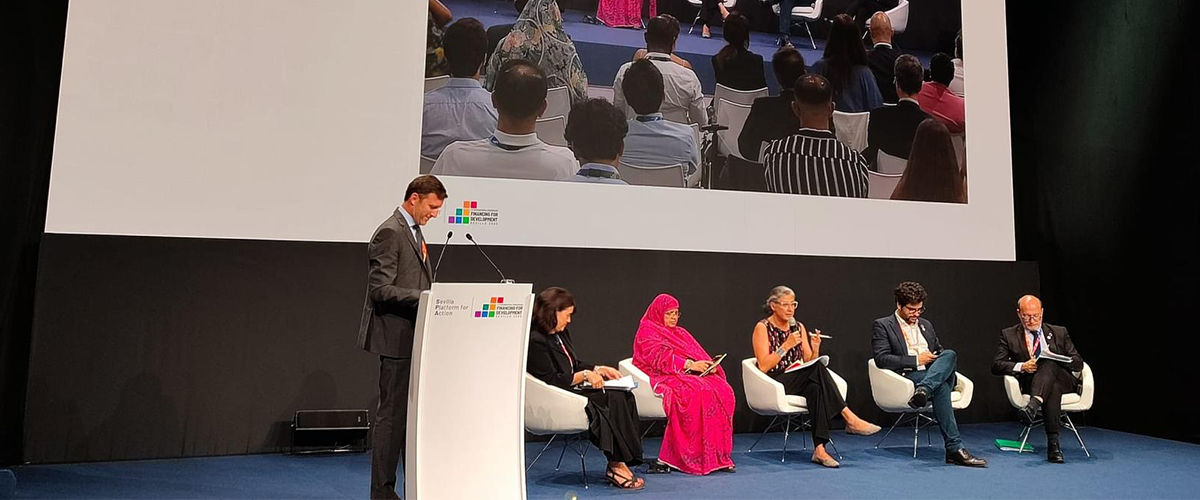At FfD4, ORU Fogar Advocates for Adequate Financing for Global South Regions

At the International Conference on Financing for Development (FfD4), held in Seville, local and regional governments once again raised their voices to demand a central role in the global financial architecture. In this international forum, ORU Fogar emphasized the urgency of transforming the international financial system to make it more accessible, equitable, and effective, especially for regions in the Global South.
ORU Fogar’s position focused particularly on denouncing the fact that regional governments in the South are increasingly taking on responsibilities in key development areas, yet they lack the necessary financial support. The organization pointed out that major cooperation institutions, including multilateral ones, systematically overlook intermediate governments, even when these governments are leading critical policies on food security, climate adaptation, or basic services.
As part of its advocacy, ORU Fogar presented a report centered on analyzing the percentage of national public expenditure managed by intermediate or regional governments. The document examines the distribution of fiscal resources across different levels of government to assess the degree of financial autonomy and the impact on the quality of public services. It highlights comparative figures and recent trends, enabling the identification of which regions have greater budgetary control and where improvements in fiscal governance are recommended.
ORU Fogar issued a specific call to decentralized cooperation and development agencies to prioritize working with African, Latin American, and Asian regions. It noted that in many cases, these regions are driving territorial transformations comparable to those Europe experienced decades ago, and that they require real financing tools to consolidate their progress.
During the World Assembly of Local and Regional Governments, the intervention by Javier Cortés, Head of Cooperation for the Basque Government, was significant. In his speech, Cortés emphasized the need for a territorial, systemic, multi-actor, and multilevel approach to development cooperation. He emphasized that only this approach can generate the necessary trust to drive genuine global transformation from each local and regional context. He asserted that regional governments are essential public actors for achieving the Sustainable Development Goals (SDGs), and yet the current international financial architecture still fails to provide them with adequate access or formal recognition.
In Seville, the message was clear: local and regional governments can no longer remain invisible in international financial decision-making processes. They are, and must be recognized as, key actors in achieving sustainable and inclusive global development.










































































